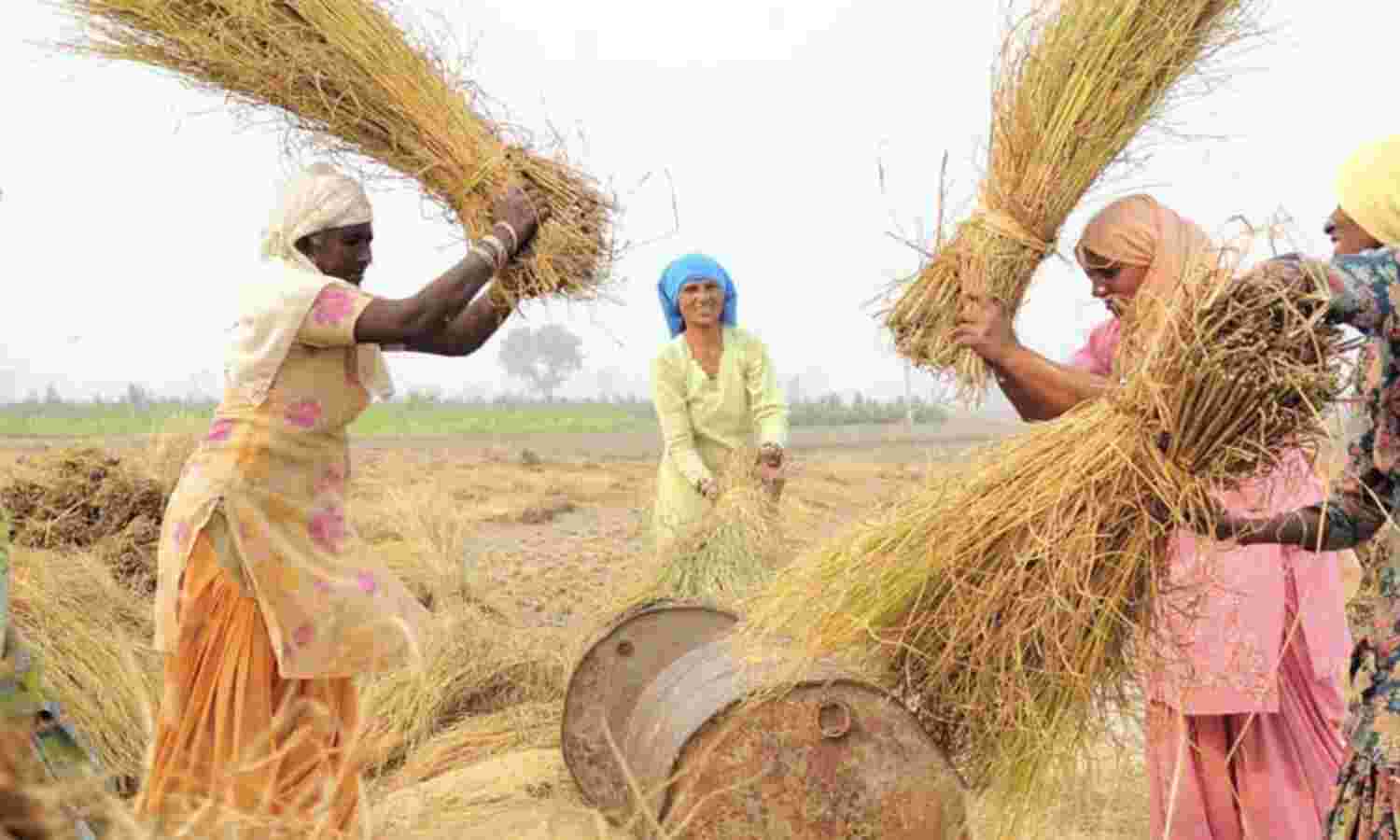Interim Budget Makes Play For Farmers, Unorganised Sector Workers, Middle-Class Voters

Mumbai and Bengaluru: The Pradhan Mantri Kisan Samman Nidhi (PM-KISAN) scheme announced as part of the 2019-20 budget will provide Rs 6,000 per year as income support to small and marginal farmers. At Rs 500 per month for an average rural family, this would amount to Rs 3.3 per person per day (assuming a family size of five), which is 1/8th the rural benchmark for poverty of Rs 27.2 per person.
This will be lower than the benefits under Telangana’s Rythu Bandhu scheme, which provides Rs 4,000 per acre per crop season to all farmers with land titles; and lower than the provisions under Odisha state government’s Krushak Assistance for Livelihood and Income Augmentation (farmers’ income support) scheme, which will provide Rs 25,000 over five seasons to small and marginal farmers, as well as landless and vulnerable households.
Expected to cost the public exchequer Rs 75,000 crore--2.6% of the total allocation for the next financial year--the scheme aims to target farmers who own upto 2 hectares, who are estimated to number 120 million across the country.
Farm distress and rural indebtedness are widely believed to have contributed to the Bharatiya Janata Party’s (BJP) loss in the recent assembly elections in Rajasthan, Madhya Pradesh and Chhattisgarh.
PM-KISAN will give Rs 6,000 per year in three equal installments “for procuring inputs such as seeds, fertilizers, equipment, labour etc. and to meet other needs”, Goyal said.
The budget also announced assistance for all farmers affected by severe natural calamities from National Disaster Relief Fund. It will provide interest subvention--interest subsidy to farmers on short-term credit--of 2%, and prompt-repayment incentive of 3% for the entire period of loan reschedulement.
Despite presenting an interim budget, acting Finance Minister Piyush Goyal on February 1, 2019, announced numerous sizeable schemes aimed at both rural and middle-class voters, ahead of the general election this year.
In an election year, ruling parties usually present either an interim budget, which covers the transition period until the new government assumes office, or a vote on account, which is a grant approved by parliament to enable the government to function until a full-fledged budget is passed by the incoming government.
By convention, new schemes with far-reaching fiscal implications are not announced. Nevertheless, in addition to PM-KISAN, the government announced a tax exemption for those earning up to Rs 500,000 annually, as well as a pension scheme for workers retired from the unorganised sector.
Increasing the total budget for 2019-20 by 14% to Rs 27.8 lakh crore over the preceding year, Goyal targeted middle-class voters by raising the threshold for complete income tax exemption to Rs 5 lakh per annum from Rs 2.5 lakh, which is estimated to benefit up to 30 million individual taxpayers. Further, those earning up to Rs 6.5 lakh annually will not pay tax on investments.
In other announcements, Goyal launched what he said could grow to be “one of the largest pension schemes of the world” within the next five years. The Pradhan Mantri Shram Yogi Mandhan will provide a monthly pension of Rs 3,000 to those over the age of 60 years who were engaged in informal (unorganised) work. Those joining the scheme would pay a monthly contribution of Rs 100 if they are over 29 years of age, and lesser if they are younger.
Up to 90% of India’s workforce are currently employed in the informal sector, employed as domestic help, drivers or construction workers, for instance, and have a non-contractual relationship with their employer. Thus far, they have had almost no social security or benefits. Goyal said he expects up to 10 crore (100 million) workers to sign up for the scheme, which will be implemented from the current year.
The budget announcement included the “setting up of Rashtriya Kamdhenu Aayog to upscale sustainable genetic up-gradation of cow resources and to enhance production and productivity of cows”, and Rs 750 crore were allocated to the Rashtriya Gokul Mission that aims to develop and conserve indigenous breeds of cattle.
Although the allocation for the Mahatma Gandhi National Rural Employment Guarantee Scheme--the world’s largest job-creation programme--increased 9% to Rs 60,000 crore, it remained 1.8% lower that the revised estimates (the approximate actual requirement) of Rs 61,084 crore.
The defence sector also received a boost, with the proposed allocation “crossing Rs 3 lakh crore for the first time”. Goyal said the current government has implemented the One Rank One Pension (OROP) scheme, under which, he claimed, Rs 35,000 crore have been disbursed.
Claiming that India would become a “ten trillion dollar economy” within the next 10 years, Goyal announced a National Programme on Artificial Intelligence under which nine priority areas would be targeted and Centres of Excellence established. India’s space programme, Gaganyaan, would put an Indian astronaut in space by 2022, Goyal said.
Goyal claimed that India’s youth have turning from being “job seekers” to becoming “job creators”, and that India is the “second largest startup hub in the world”. These claims come close on the heels of a leaked NSSO report this week that showed unemployment to be at a 45-year high (6.1%), with youth suffering the most--up to 17.4% of rural, male young people are unemployed, the report said.
(Paliath is an analyst and Sanghera is a writer and researcher with IndiaSpend.)
We welcome feedback. Please write to respond@indiaspend.org. We reserve the right to edit responses for language and grammar.


